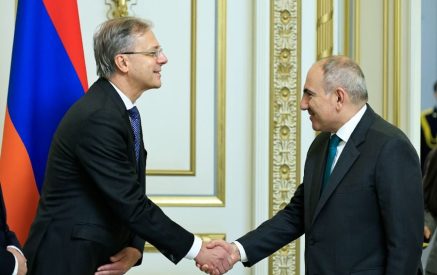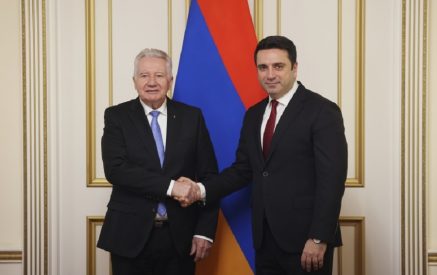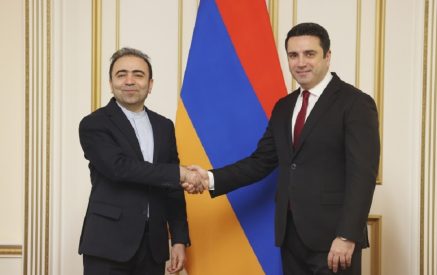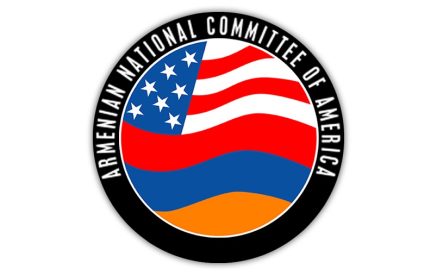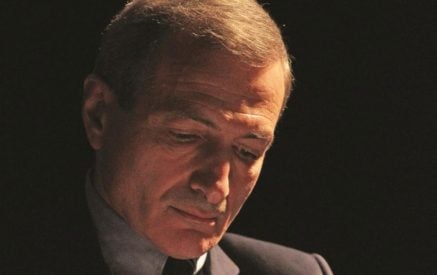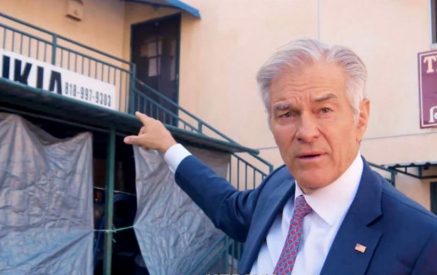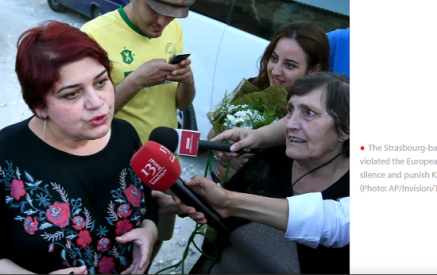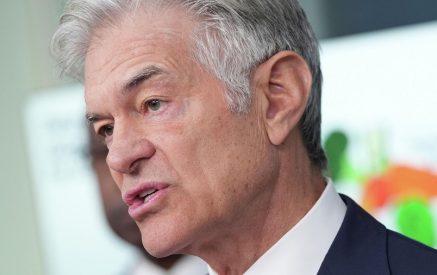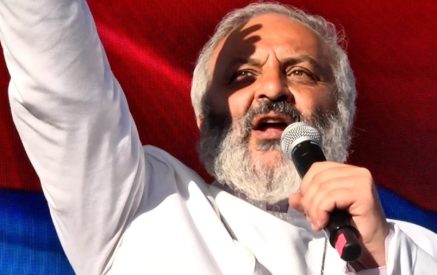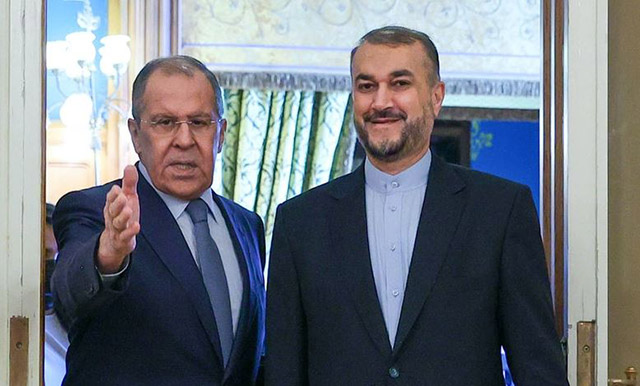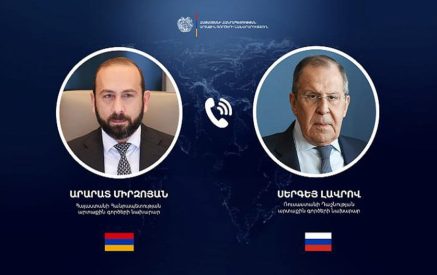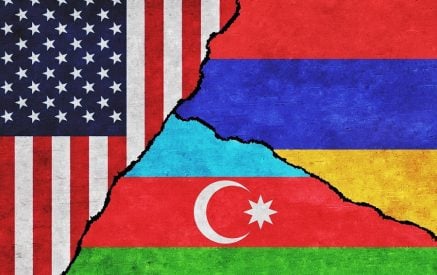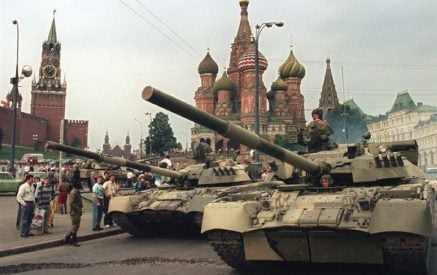It was amid escalating tensions between Iran and Azerbaijan that Iran’s new Foreign Minister Hossein Amir-Abdollahian visited Moscow to meet with his Russian counterpart Sergey Lavrov earlier this month. While the Russo-Iranian agenda is traditionally wide-ranging and includes topics such as the revival of the 2015 Iran nuclear deal and issues relating to countries such as Afghanistan, Syria and Yemen, the situation in the South Caucasus naturally occupied a prominent place in the talks.
However, the outcome of his visit was likely not what Amir-Abdollahian would have hoped for, as Russia refused to back Iran in its stand-off with its northwestern neighbor, Azerbaijan. Russia’s indifference to Iran’s concerns raises early questions about the viability of the “Look to the east” foreign policy doctrine adopted by the new, conservative administration of Iranian President Ebrahim Raisi.
Prior to his visit to Moscow, Amir-Abdollahian lashed out at Baku, refusing to countenance any changes to the border between the two countries. Baku interpreted these remarks as confirmation of Tehran’s opposition to Azerbaijan’s restoration of control over lands formerly under Armenian occupation and Iran’s alleged pro-Armenian leanings.
Yet Iran has long supported Azerbaijan’s territorial integrity, a position stressed by Supreme Leader Ayatollah Ali Khamenei himself during the Nagorno-Karabakh war between Armenia and Azerbaijan last year. As such, Amir-Abdollahian’s remarks were rather a reaction to Azerbaijani President Ilham Aliyev’s claims of possession of Syunik, a strip of Armenian land sandwiched between Azerbaijan’s mainland and its exclave, Nakhichevan.
Read also
The Nov. 2020 trilateral Russia-Armenia-Azerbaijan statement that put an end to the Nagorno-Karabakh war stipulated the re-establishment of the transport and economic links between Armenia and Azerbaijan. Baku took this as a mandate to carve out for itself a corridor through Syunik—which it calls “the Zangezour corridor”—although no specific mention of this is made in the statement. Furthermore, Aliyev’s irredentist rhetoric stokes fears of annexation of this territory.
Syunik also happens to be the only place where Armenia borders Iran. Its annexation by Azerbaijan would therefore make Iran more dependent on Azerbaijan (and Turkey) for its transport links with the Caucasus and further north with Russia. Tehran also fears that the consolidation of Azerbaijan and Turkey on its northern borders could incite separatism among Iran’s own ethnic Azeri population. Together, these factors prompted Amir-Abdollahian’s warning to Azerbaijan against any “geopolitical changes” in the Caucasus.
Iran’s foreign minister also hit out against “Zionist and terrorist forces” in Azerbaijan, referring to Israel’s generous support for the country during the Nagorno-Karabakh war and the presence of Syrian jihadists, arriving via Turkey to fight Armenians alongside Azerbaijani forces. Ayatollah Khamenei weighed in on these points, obliquely warning “regional states” not to rely on “foreign forces” for their security, without, however, naming Azerbaijan directly.
President Aliyev responded defiantly to what he called “unsubstantiated accusations,” vowing not to leave them “without a response.” Disregarding diplomatic courtesy, Aliyev told Iran “not to poke its nose” in Azerbaijan’s affairs before being photographed with an Israeli-made drone near his country’s border with Iran, winning him enthusiastic plaudits from hawks in Washington.
Thus, if Amir-Abdollahian’s visit to Moscow was intended to win Russian support for Iran’s position on developments in the Caucasus, he will have left disappointed.
During their joint press conference, Lavrov was asked by an Iranian journalist about the recent “provocative” joint Azerbaijani-Turkish-Pakistani military drills conducted in Azerbaijan. Russia’s foreign minister responded by raising Baku’s concerns about Iranian military exercises near Azerbaijan’s borders.
On the subject of Azerbaijani-Turkish naval drills in the Caspian Sea last August, Lavrov urged Iran to ratify the convention that forbids any non-Caspian military presence in the sea. Iran is the last of the five states involved (the other four are Russia, Kazakhstan, Azerbaijan and Turkmenistan) who still has not signed the document.
The convention is considered by many in Iran to be disadvantageous due to the terms under which the resource-rich seabed is divided among the five countries and as a result, the administration of former president Hassan Rouhani faced criticism for ceding too much ground on this matter. However, any Iranian administration would find it difficult to satisfy public expectations given the echoes of the traumatic Turkmanchay and Golestan treaties of the 19th century under which Iran lost its possessions in the Caucasus to Russia.
Russia will not be ignorant of Iran’s sensitivities. However, its broader interests determine that it appease Ankara and Baku rather than accommodate Tehran. Moscow’s elaborate dance with Ankara involves a delicate balancing act in Syria, powerful economic interests—including building nuclear reactors in Turkey—and the biggest prize of all, prying Turkey away from NATO. Although Turkey’s formal withdrawal from the western military alliance is not likely in the short term, selling its S-400 missile defense system to a NATO member is no small achievement for Moscow.
In Nagorno-Karabakh, Russia has the upper hand. Indeed, it was Moscow alone who brokered the ceasefire, and it is only Russian peacemakers that are deployed in the region. However, Russian President Vladimir Putin is careful not to alienate his Turkish counterpart Recep Tayyip Erdogan, in order not to damage his broader interests in this relationship. Consequently, Russia accepts Turkey’s presence in the Caucasus.
This unwillingness to antagonize Ankara—Baku’s closest ally—also partially explains Russia’s accommodation of Azerbaijan. Yet there are further dimensions to their cordial relations, including Aliyev’s expulsion of all major US organizations from Azerbaijan, appeasing Moscow’s perennial fears of a ‘velvet revolution’. Furthermore, Baku has generally respected Moscow’s red lines in its interactions with the US. As one Russian observer put it to the author during the Nagorno-Karabakh war, “Armenia may be our ally, but Azerbaijan did nothing to deserve our punishment.”
All this leaves Tehran in a precarious position. Due to Iran’s perennially dysfunctional relationship with the west, Moscow can afford to take relations with the country for granted. By contrast, cultivating ties with Ankara and Baku requires active effort, and if Iran’s interests run counter to such efforts, it is deemed an acceptable price to pay to run roughshod over them. Hence Russian support for Azerbaijan establishing transit “corridors” bypassing Iran.
Consequently, Lavrov’s proposal of a 3+3 format (Armenia, Azerbaijan, Georgia + Russia, Turkey and Iran) to promote regional integration is disingenuous. No such scheme can prosper when participating states, in this case Iran, perceive themselves to be sacrificing their security concerns and core national interests.
Taking Amir-Abdollahian’s trip to Moscow as an early indicator, it is doubtful the extent to which “Look to the east” genuinely serves Iran’s national interests rather than exposing it to the exploitative intentions of powers such as Russia—and neighbors such as Azerbaijan and Turkey. So far, signs are not good for the new, “balanced foreign policy” that the Raisi administration has promised.
Eldar Mamedov has degrees from the University of Latvia and the Diplomatic School in Madrid, Spain. He has worked as a Latvian diplomat. Since 2009, Mamedov has served as a political adviser for the social-democrats in the Foreign Affairs Committee of the European Parliament (EP) and is in charge of the EP delegations for inter-parliamentary relations with Iran, Iraq and the Arabian Peninsula.






















